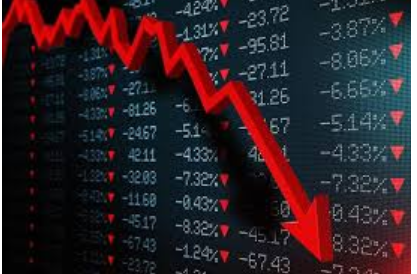Fidelity noterer ved starten af ugen en række highlights over de vigtigste nyheder, og tophistorien er et kraftigt fald i den kinesiske vækst i 3. kvartal til 4,9 pct. på grund af energi- og forsyningsproblemer, ligesom der har været et fald i investeringer i byggesektoren. De globale forsyningsproblemer og mangel på arbejdskraft er nu blevet en større risiko for USAs økonomi end pandemien. Da grøn energi langt fra kan dække energibehovet bliver der en større satsning på olie, der ifølge de mest vilde rygter kan stige til 200 dollar. Der er voksende frygt for, at Joe Bidens gigantiske struturplaner ikke vil styrke væksten, fordi planerne bliver udhulet på grund af politisk modstand.
Uddrag fra Fidelity/Dow Jones:
News Highlights: Top Global Markets News of the Day
China Third-Quarter Economic Growth Slows Sharply to 4.9%
China’s economy grew 4.9% in the third quarter from a year earlier, slowing sharply from the previous period, as power shortages and supply-chain problems added to the impact from Beijing’s efforts to rein in the real estate and technology sectors.
Supply-Chain Bottlenecks, Elevated Inflation to Last Well Into 2022, Survey Finds
Economists see supply constraints and labor shortages as bigger risks to the U.S. economy than Covid-19, according to a WSJ survey.
‘Crazy’ Bets on $200 Oil Invade the Options Market
Traders are wagering U.S. crude’s rally to a seven-year high is just the beginning, despite a softening global economic expansion.
Behind the Energy Crisis: Fossil Fuel Investment Drops, and Renewables Aren’t Ready
The transition to cleaner energy sources isn’t far enough along to meet a surge in demand, forcing countries to rely on fossil fuels.
Economy Week Ahead: China GDP, U.S. Industry and Housing
The latest snapshot of China’s economic growth, U.S. industrial production and the housing market highlight this week’s economic data.
Stocks Close Best Week in Months After Strong Earnings Reports
U.S. stock benchmarks gained as investors parsed a strong streak of earnings reports, while oil prices extended their run-up.
Biden’s Soft Infrastructure Agenda May Not Boost Growth
The president has sold soft infrastructure such as in child care, college and health as good for the economy, just like hard infrastructure such as roads and bridges. Some economists are skeptical.
Democrats Face Benefits and Climate Consensus Deadline
Party lawmakers are immersed in whittling down a package initially pegged at roughly $3.5 trillion to an amount that centrists can support.











